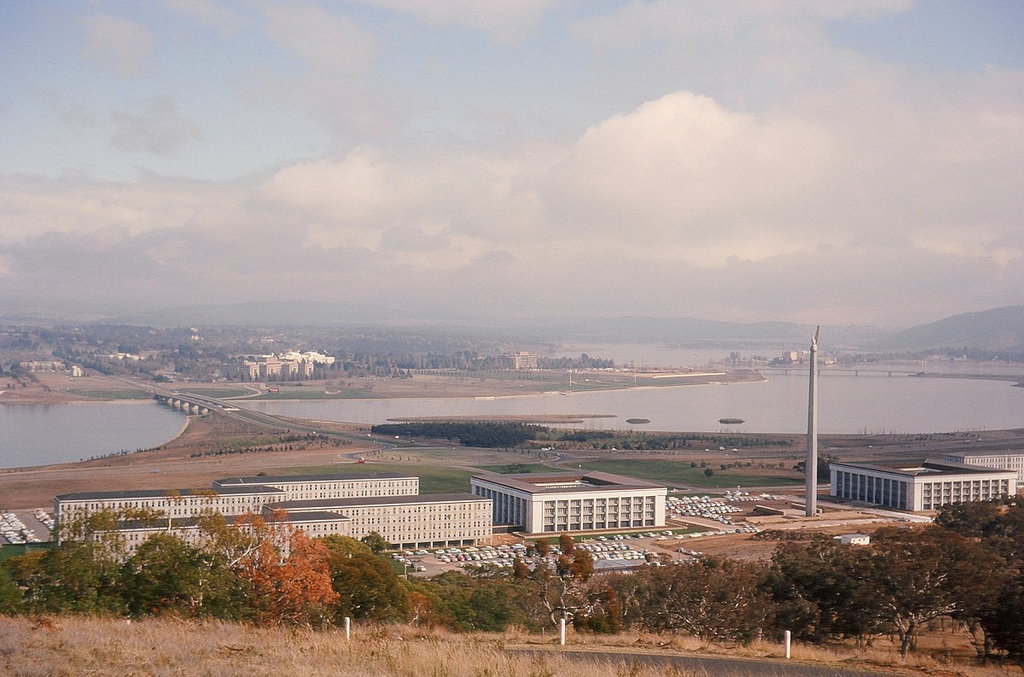To think and to do in Defence
 Beyond running a huge civilian workforce, the Secretary of the Defence Department is torn at by an extraordinary array of g-forces: government, generals, gear (the buying, building and running of), geopolitics and geography. On bad days, and even on normal afternoons, some of those must indeed feel like gravitational forces.
Beyond running a huge civilian workforce, the Secretary of the Defence Department is torn at by an extraordinary array of g-forces: government, generals, gear (the buying, building and running of), geopolitics and geography. On bad days, and even on normal afternoons, some of those must indeed feel like gravitational forces.
To change the alliterative flavour and go to the top of the alphabet, see the need for the Secretary always to have an A-game: alliance, admirals, armoury…. Peter Jennings and Hayley Channer have charted the ever-shortening lengths of the tenures of the blokes who sit in the Secretary chair (so far, all blokes), and judged:
The volume of work is unbelievable and the stakes in terms of peoples’ lives and money spent are enormously high. Mental exhaustion is a serious risk. For all these reasons Defence doesn’t fit well into the daily Canberra spin cycle.
For all those reasons and more, pause to note the passing of a Defence doer and thinker, Bill Pritchett, who died last week just short of his 93rd birthday (31 January 1921 – 28 January 2014). Where Arthur Tange changed Defence through brains, bile, bluster and bullying, his successor, Bill Pritchett did the same job just through the use of his brain. Like Tange, Pritchett had a first class brain. Unlike Tange, Pritchett had impeccable manners.
Tange stands as a giant in Defence history because of the way he remade the Department during his nine years as Secretary (1970-1979)—the greatest peacetime changes of Australian defence institutions in our history. Following him, Pritchett was Secretary until 1984, and showed that the machinery Tange had created could be made to work by someone apart from Tange.
The operation of the Defence today owes much to men like Pritchett, while paying due homage to Tange as the creator. In the terms that Peter and Hayley used, Tange was a structural reformer while Pritchett stands in the honourable ranks of problem solvers (with the added bonus that he could write as clearly as he thought).
The distinction matters because any institution can take only so much punishment. Tange was a man who ate public servants for breakfast and clawed chiefs of the general staff for morning tea. My version of this image, portraying Tange as a feudal lord, found its way into Peter Edwards’ biography of Tange. You can read that feudal lord portrayal here, including the punchline, which expressed Tange’s deep distaste for journalists. See also this column comparing Tange with today’s Defence Secretary.
Any discussion of Pritchett has to be influenced by the gravitational force of Tange, not least because it was Tange who lured Pritchett to Defence from Foreign Affairs in 1973. Among Pritchett’s accomplishments was his ability to give frank and fearless advice to Arthur Tange.
After service in WWII, Pritchett was appointed as a diplomatic cadet in 1945, and went on to serve in posts including Jakarta, Berlin, New Delhi, Singapore and London. One of his stories of the trials of a young diplomat, sent abroad to drink for his country, concerned the saga of the Foreign Minister’s Singapore shirts:
When I was in Singapore, [Richard] Casey [Minister for External Affairs] sent a message to me from London to buy him some shirts, so I bought him some shirts and sent them off. A couple of weeks later he sent them back. So I went out and bought him some more shirts and sent them off and the same thing happened; he sent them back. So I went and sent him some more and he sent them back. I gave up then; I didn’t send him anything and that was the end of that contact.
The moral: you can’t always please the minister, no matter how hard you try. The task in writing about Bill Pritchett, beyond marking the passing of a fine public servant, is to point to elements of his experience that matter to today’s generations, even if they’d never heard of him. As noted, Jack Waterford (himself a journalistic national treasure) has written a fine appreciation of Pritchett which includes some ruminations on the changing nature of the job of Defence Secretary.
Rather than go over that ground, I want to point to some of Pritchett’s writings to show the measure of the man. In judging a public servant, always follow the paper trail. A good short primer on Pritchett’s understanding of intelligence, the alliance and Australia’s interests, can be found in the submission he made (PDF) to the 2003 Parliamentary inquiry on the nature, accuracy and independence of the intelligence used by the Australian government in the Iraq War.
Pritchett’s conclusion was that, in joining the war, Australia’s ‘overriding motivation was unquestioning support for the US. This returns us back to earlier the last century when what the historian calls our “race patriotism” shaped unquestioning support for Great Britain and belief in the rightness of her cause and the certainty of her support. This reverses Australia’s development since the second world war of independent nationhood’.
The words of a retired senior public servant are one thing. Monday’s post will follow Pritchett as a First Assistant Secretary, going to battle with a Prime Minister.
Editor’s note: after this post was published the Canberra Times published a lengthy obituary of William Pritchett, here.
Graeme Dobell is the ASPI journalism fellow. Image from Flickr user Canberra House.